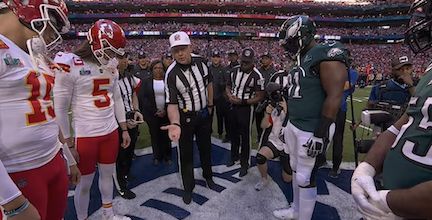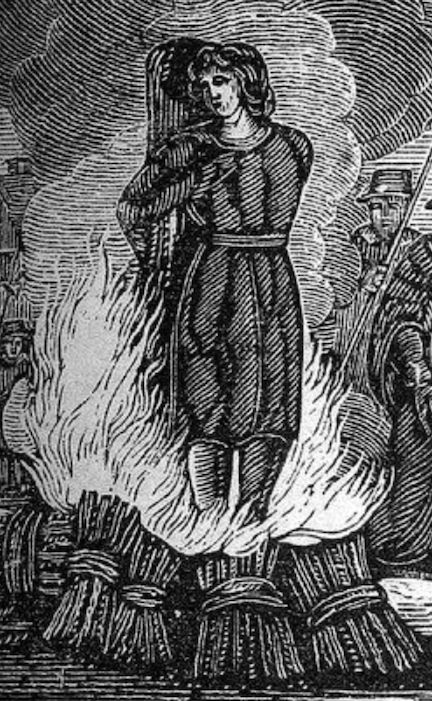Two Kinds of Fairness
What do we mean when we say life is or is not fair? God, in His infinite wisdom, does not operate with just one definition of fairness, but juggles two.
The most obvious form of fairness is the strict administration of justice, where everyone gets exactly what they deserve, no more, no less.

However, an alternative type of fairness is achieved through impartiality, where everyone is treated the same, regardless of merit.
For example, when two teams flip a coin to determine who gets the ball first, the outcome has nothing to do with which team is more deserving. A coin is flipped because the result is impartial, and that’s what makes it fair.

So randomness is fair when it shows no favoritism, while justice is fair when it does. In what sense, then, does God seek to be fair with us? Is it with the justice of a gavel striking the sound block, or with the impartiality of a coin spinning through the air?
Jesus addressed this issue head-on when he said, “Love those who are lovable. Pray for those who are deserving of your support, that you may be just like your Father in heaven. For He causes the sun to shine on the virtuous, and He directs the rain to fall exclusively on the fields of the faithful.”
You might be thinking that doesn’t sound much like Jesus, and you'd be right. What I just cited was what Bizarro Jesus might have said if he hailed from an alternate reality where justice, not grace, reigned supreme. The actual words of Jesus, hailing from our reality, where grace is the name of the game, are as follows: “But I say to you, love your enemies, bless those who curse you, do good to those who hate you, and pray for those who spitefully use you and persecute you, that you may be sons of your Father in heaven; for He makes His sun rise on the evil and on the good, and sends rain on the just and on the unjust” (Matthew 5:44-45, NKJV).
According to Jesus, God is fair, not with a fairness that rewards the deserving, but with a fairness that demonstrates the equal value that He places on each of us. In other words, God is fair by being uncompromisingly indiscriminate.
The criteria that govern the distribution of the rain are the same criteria by which God determines what circumstances land in our lives. The determining factor is not our personal piety, but God’s boundless, impartial love. As we consider some of the unwanted things that have found their way into our lives, the surprising twist is that it was God’s indiscriminate love, not His judgment, displeasure or indifference, that placed them there!
People of faith often suggest that there are no accidents in life. Actually, there are, but according to this passage of Scripture, they’re all on purpose! Through an arbitrary distribution of life’s circumstances, God is fair while simultaneously demonstrating the indiscriminate nature of His love for all humanity.
Woman Who Threw Burrito Sentenced to Work in Fast Food
Rosemary Hayne lost her mind. In a moment of anger and frustration, she threw her burrito bowl in the face of a Chipotle manager. It was caught on video and the police were called in. Rosemary went before the judge and was charged with assault.
'You didn't get your burrito bowl the way you like it and this is how you respond?' the judge said during sentencing.
Rather than face prison time, she put her fate in the hands of the judge who sentenced her to work at a fast-food restaurant for two months.
Click here to view the video.

If you have ever worked in the fast-food industry, you know the lack of joy, the high stress, and the absence of gratitude many people have towards the employees. All employees have nightmare stories of how they were sometimes treated, when all they were trying to do was pay bills or clothe their kids, all the while working for next to no pay. This story resonates deeply with any former employee of Taco Bell, or McDonald's, or Burger King!
Two insights into this story:
1. Scripture tells us that we are to value others over ourselves, or at the very least, equally to ourselves (Mark 12:31). Rosemary, while frustrated, needed to express empathy for the people that work hard to serve her. Instead, she exalted herself above them and dehumanized the employee by throwing the food.
2. We feel a sense of justice at the punishment Rosemary was given. And yet, it reminds us that Jesus suffered the greatest human injustice in bearing the wrath of God that WE deserved. Imagine if Rosemary's lawyer had taken the punishment , sot that Rosemary was able to go free with no consequences. We would be incensed. Yet this is what Jesus did in our place — this is the meaning of the word propitiation. Christ took our punishment so that we would be favorably viewed by God.
"Do nothing from selfish ambition or conceit, but in humility count others more significant than yourselves" (Philippians 2:3, ESV).
"Do not take revenge, my dear friends, but leave room for God’s wrath, for it is written: 'It is mine to avenge; I will repay,' says the Lord" (Romans 12:19, NIV).
Last Salem Witch Finally Pardoned
Fox News and the AP report:
A woman who was convicted of witchcraft in Salem, Massachusetts, finally has had her name cleared after more than three centuries.
Massachusetts lawmakers on Thursday legally pardoned Elizabeth Johnson Jr.
Johnson's conviction took place back in 1693 — and she was sentenced to death amid the Salem Witch Trials. Johnson is the final accused "witch" to be cleared, the Associated Press reported.
Wow, this was a pardon 300+ years in the making! And it took a bunch of middle school students to advocate on her behalf.
It turns out a group of 8th graders at North Andover Middle School in North Andover, Massachusetts, were studying the era when they discovered the last unpardoned “witch.” So they began researching ways to rectify the situation. The result was a piece of legislation which righted the wrong.
"We will never be able to change what happened to victims like Elizabeth but at the very least can set the record straight," Massachusetts Sen. Diana DiZoglio, who approved the bill to pardon Johnson, told the AP.

When sin signs, seals, and delivers our judgment, who will be our advocate? Who will leave the 99 to seek the one who needs rescuing and redemption, the last one left behind?
Jesus, that's who! It’s a pardon story, eternity in the making.
“My dear children, I write this to you so that you will not sin. But if anybody does sin, we have an advocate with the Father—Jesus Christ, the Righteous One” (1 John 2:1, NIV).
“Suppose one of you has a hundred sheep and loses one of them. Doesn’t he leave the ninety-nine in the open country and go after the lost sheep until he finds it?” (Luke 15:4, NIV).